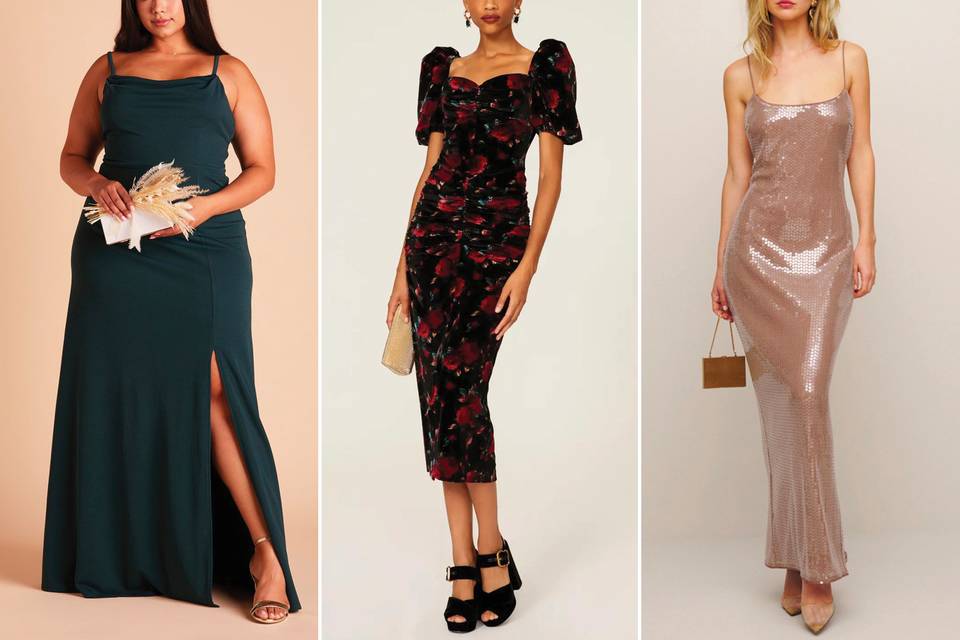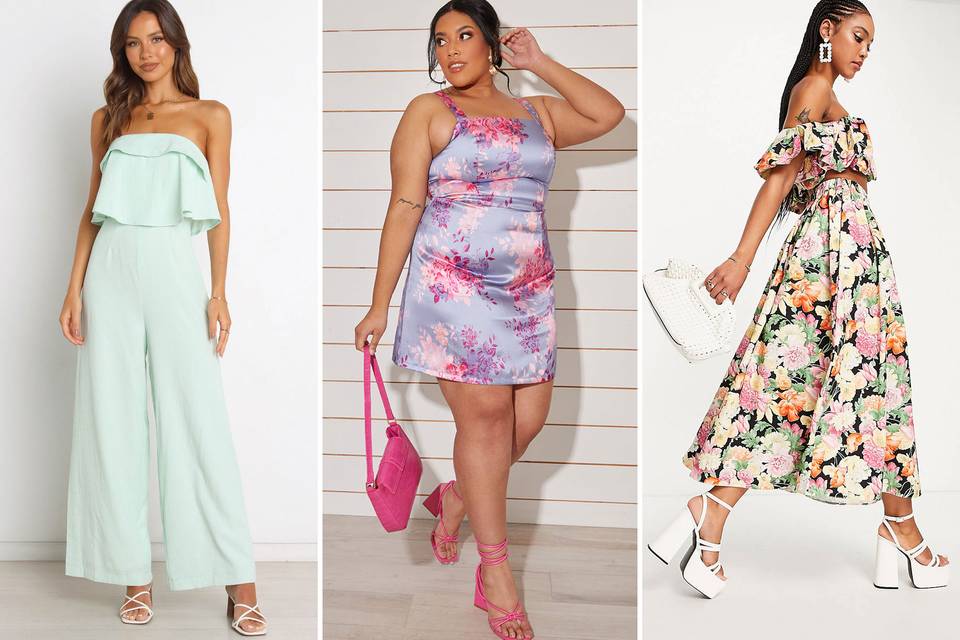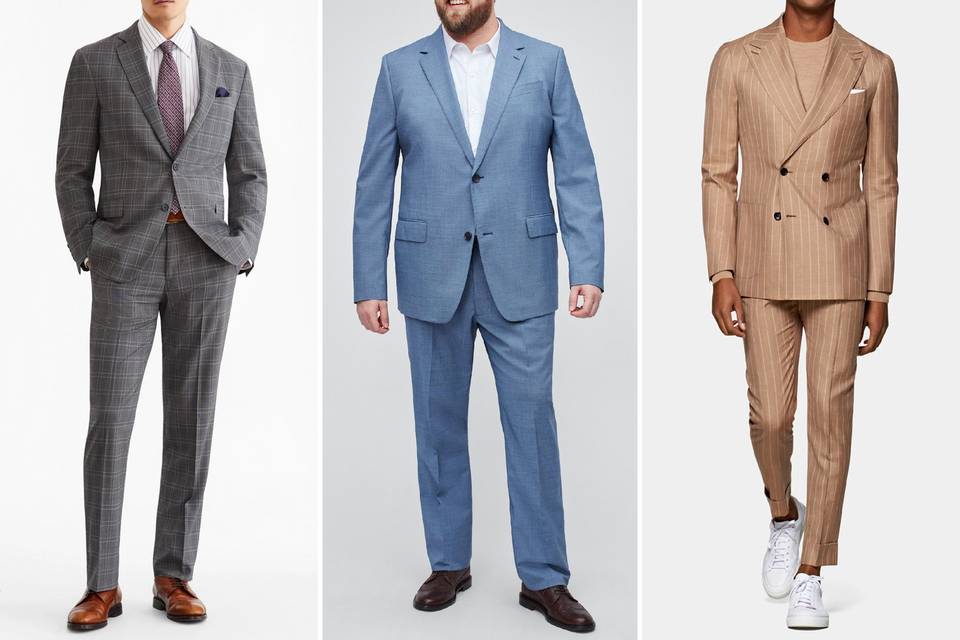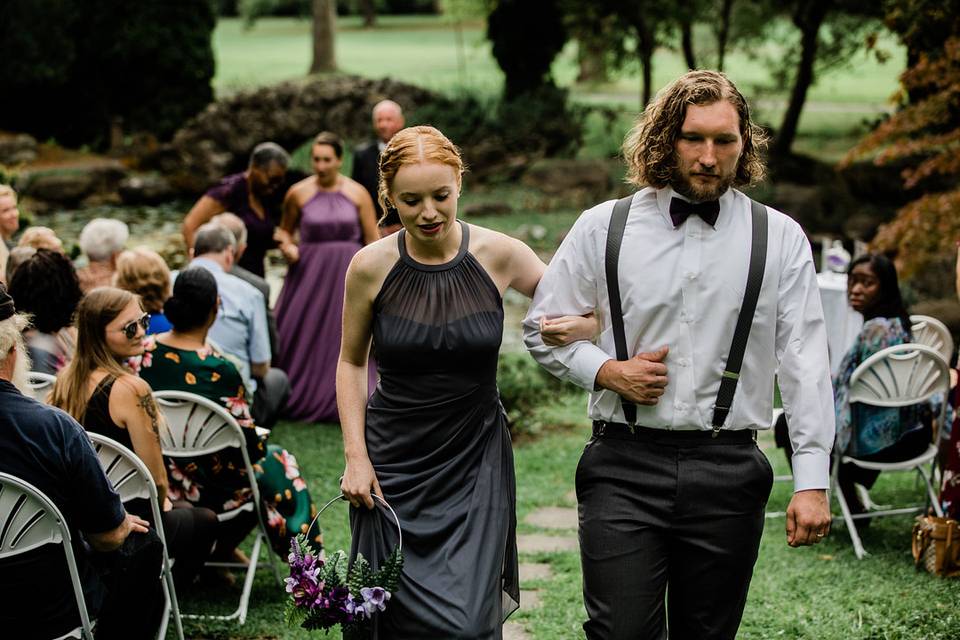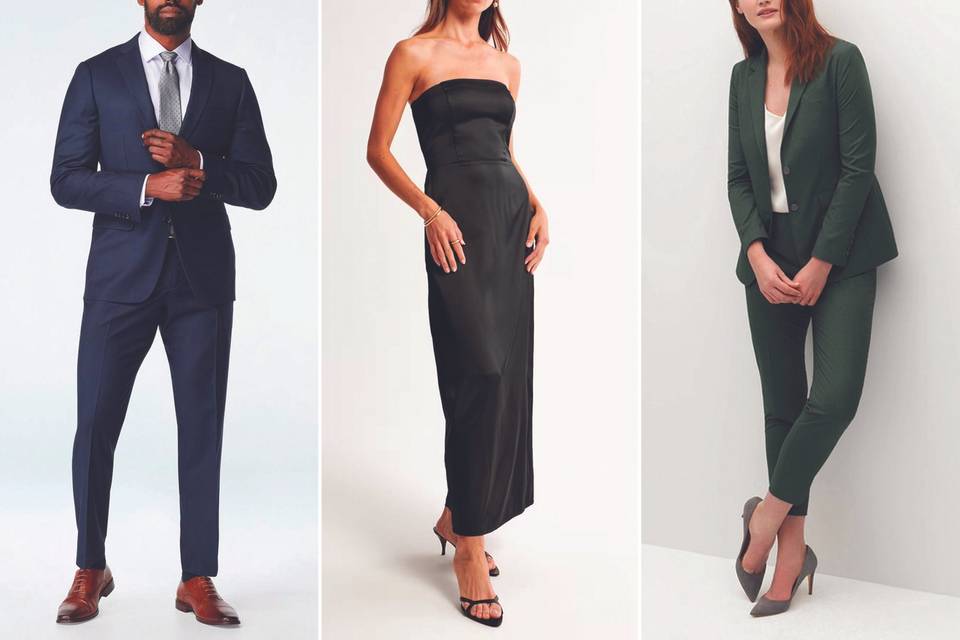If All of Your Guests Receive the COVID Vaccine, What Will Your Wedding Look Like?
With more and more people getting vaccinated, and restrictions being lifted left and right, there’s a good chance you might be able to have that wedding you always dreamed of.
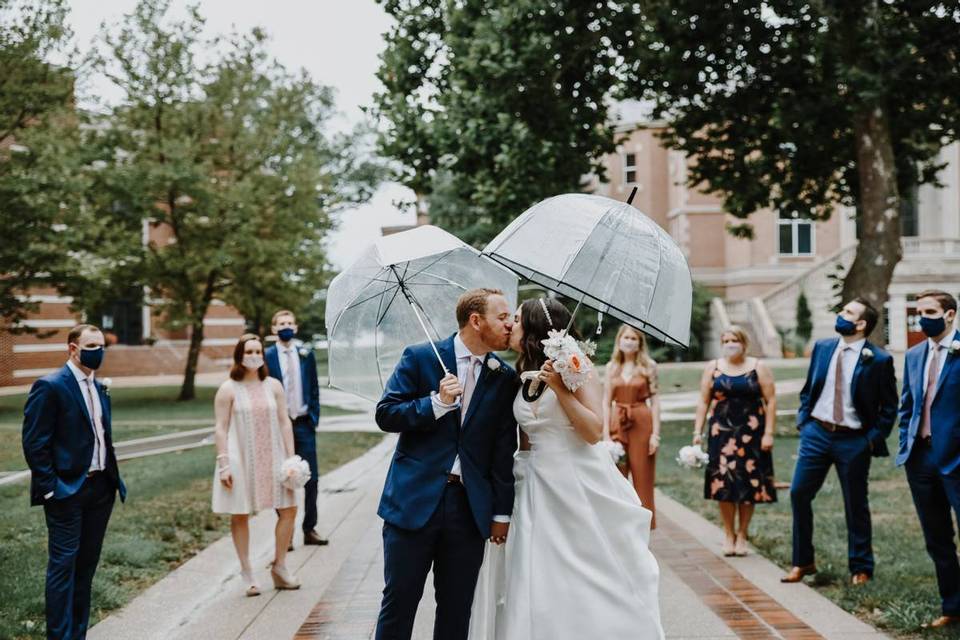
According to the WeddingWire Newlywed Report, nearly half of couples who planned on getting married in 2020 have rescheduled their reception to 2021—so this year is shaping up to be a busy one. Couples are eager to gather and celebrate with loved ones, and after the year we’ve all had, who isn’t?
While circumstances will be different depending on state restrictions (many states are enforcing indoor mask requirements due to the Delta variant), as well as those of the particular venue where the wedding will be held, most experts give the thumbs up so long as you’re still practicing prestige hygiene and urging guests to take precautions should they feel ill.
“If you are fully vaccinated, the science and data now tells us that you can feel safe that you are going to be extremely well protected either indoors or outdoors,” says Vivek Cherian, M.D., an Internal Medicine physician affiliated with the University of Maryland Medical System. “However, concern certainly still remains for individuals who are not vaccinated because they are not protected against this virus,” he says.
All this being said, there are ways to host a beautiful wedding and keep your guests safe. Remember that these are the measures to take now. What guidelines and safety measures will need to be in place 6 months to a year from now are still unknown, so it's important to lean on local guidelines as well as your team of wedding vendors.
Follow local regulations.
It probably goes without saying, but it’s essential to keep up to date with your state and local gathering restrictions—some jurisdictions are requiring masks to be worn indoors, while others are not. If possible, it’s smart to keep social distancing measures in place by either having a smaller guest list or opting for a bigger space to make social distancing doable.
Avoid self-serve options.
To pull this off, you may have to hire more staff to help serve buffet foods or individual plates, but Kayla Percy MSN, MPH, CPNP-PC, RN, a Consultant for Hess III Consulting and Pediatric Nurse Practitioner at Chiricahua Community Health Centers, says doing so is absolutely worthwhile. This will help reduce the transmission of germs from touching hot-spot surfaces and still allow your guests to enjoy a nice, seated meal. Ask your caterer or banquet manager for recommendations, as they are likely well-versed in food safety guidelines.
Reconsider that seating arrangement.
“Coordinating your seating arrangement for family and friends that are already in a ‘COVID bubble’ will also help to reduce risk and stress,” says Percy. “Consider small tables, with no more than 4 people at each one, to help reduce risk.”
Require all your guests to be vaccinated—or mask up
Many couples are opting to require that their guests be vaccinated and even show proof of vaccination on the day of the wedding. This is to ensure that everyone is safe. If you do choose to allow non-vaccinated individuals to attend your wedding, t’s important to require that they wear their mask both indoors and outdoors, per CDC guidelines.
Be flexible.
“This is a philosophy that any skilled planner has in their back pocket at all times and it applies even more so in this climate,” says Gary Guerin, C.F.D., owner of STEM SWAG in Phoenix. “Due to COVID-19, there’s an increased risk of guests unable to attend last-minute and a myriad of other things that could get derailed.” What you don’t want to do: stress yourself out double planning every single detail, Guerin notes. Instead, just be open-minded to the fact that not everything will go as planned.
Expect the unexpected.
As with any undertaking including a large group of people, there's bound to be some hiccups, and more than likely everything won't go according to plan, notes Guerin. “You're going to need to build a buffer in your timeline, have systems for checks and balances (to responsibly track vaccination status), and be patient,” he says. “Getting your guests to send their RSVPs back pn time is a feat in itself so imagine the coordination this task will take.” If you haven’t hired a wedding planner, you might consider doing so (even just for the month of your wedding) to assist with all the last-minute details.
Be compassionate.
Yes, it is your special day, but Guerin reminds couples to think about the big picture: times are tough and the pandemic has affected us all differently. “From health to finances, we'll all be dealing with the ripple effects of COVID for quite some time,” he says. “If guests can't attend or aren't comfortable, don't take it personally—even if they are in good health and fully vaccinated, they may have loved ones they are tending to, childcare is unavailable, or perhaps they just can't afford travel expenses after being strapped over the last year.”

